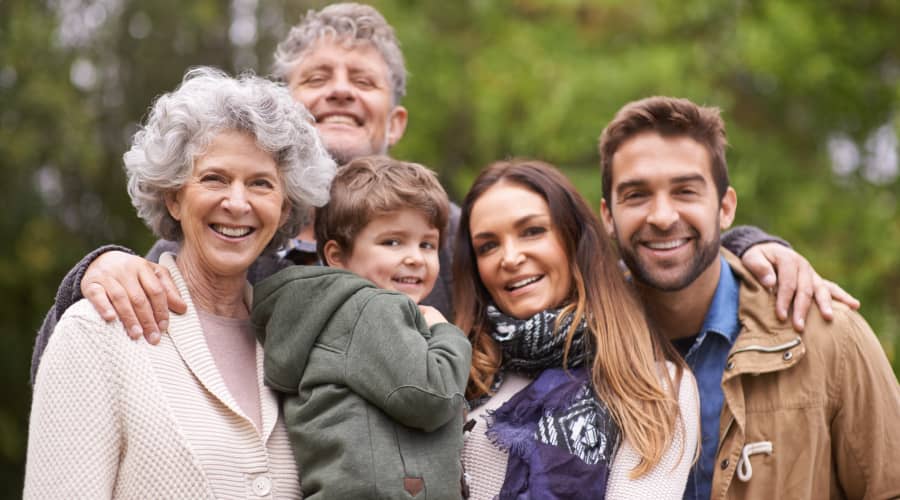
When a loved one enters hospice care, families face the deeply emotional task of preparing for the end of life. This time can be overwhelming, but one way to ease the burden is by making hospice funeral arrangements early. Having a clear plan in place helps families feel more confident and at peace, knowing their loved one’s final wishes will be honored.
For many in Rhode Island, hospice provides an opportunity to find meaningful ways to say goodbye, while making choices that align with personal, spiritual, or altruistic values. We’ll explain the resources available to help guide hospice funeral arrangements and answer the question, is there burial assistance for low income in Rhode Island?
Planning Ahead: Hospice Funeral Arrangements
Unlike emergency planning, which happens after death, making hospice funeral arrangements allows families and individuals to make thoughtful decisions, ask questions, and explore all their options without pressure.
Planning can include selecting a cremation or burial provider, arranging for a memorial or religious service, documenting wishes in an advance directive, and discussing options like donating your body to science. Hospice care teams often assist with this planning, offering valuable guidance based on the patient’s needs and the family’s preferences.
By starting these conversations early, families can focus on spending meaningful time together, rather than navigating logistics during a time of grief.
Support for Rhode Island Families
Rhode Island hospice care teams have access to a range of resources to assist in hospice-related end-of-life planning. Most local hospice organizations employ social workers, nurses, and chaplains who can help coordinate services and provide support.
Besides medical care, hospice teams provide emotional support:
- Social services: Social workers offer emotional support and counseling to patients and families, assist with navigating financial and insurance issues, advance care planning, and connect them with community resources.
- Spiritual care: Chaplains or spiritual counselors offer non-denominational spiritual support, helping patients and families explore their beliefs, find meaning, and prepare for the end of life.
- Bereavement support: Bereavement specialists provide grief counseling and support to families after the patient’s death through individual counseling, support groups, and educational materials.
- Volunteer services: Trained volunteers offer companionship to patients, provide respite for caregivers, run errands, or assist with light tasks.
Hospice care teams may also provide practical support, such as:
- Therapies: Depending on the patient’s needs, hospice may provide physical therapy, occupational therapy, and speech therapy to maintain functional abilities and comfort.
- Nutritional counseling: Guidance on diet and nutrition as needed.
- Coordination of care: The hospice team coordinates all aspects of care, working closely with the patient’s primary physician and other healthcare providers.
- 24/7 Availability: Hospice teams may offer round-the-clock phone support and may provide in-person visits as needed, including evenings, weekends, and holidays.
Is There Burial Assistance for Low Income in Rhode Island?
Hospice does not include financial assistance for funerals, burials, or cremation. However, hospice care teams can refer you to organizations with resources and help you with paperwork.
Resources can include:
- Federal government programs for military veterans or those eligible for Social Security death benefits
- State programs through the Rhode Island Department of Human Services (DHS) General Public Assistance (GPA) program
- Charitable and faith-based organizations that help with funeral and cremation costs
- Low-cost funeral services at area funeral homes
- Alternatives like donating your body to medical science
Donating Your Body After Death in Rhode Island
For many in hospice care, helping others, even after death, is a powerful and comforting legacy. Whole-body donation can serve as a final act of compassion and generosity, offering hope to future generations while eliminating the financial burden often associated with funeral planning.
Whole body donation allows you to contribute to the advancement of medical science, surgical training, and disease research. United Tissue Network (UTN) is a nonprofit organization that coordinates body donations in Rhode Island and covers the costs of transportation of the deceased, placement with a reputable medical research or educational facility, and cremation after research has been completed. Families can have the cremated remains returned, if desired, or disposed of in an ethical manner.
With free cremation, families can ease the financial burden of the end of life. Families can also take comfort in knowing that the passing of a loved one will contribute to the advancement of medical science for future generations.
Easing Your Burden
Facing the end of a loved one’s life is never easy. Making hospice funeral arrangements with help from your hospice care team can simplify the process. Whether you’re exploring hospice burial assistance, planning a memorial, or considering whole-body donation, remember that help is available.
If you or a loved one in hospice care is planning for end-of-life arrangements, consider whole-body donation through United Tissue Network. Learn more about this compassionate option and how to get started in Rhode Island.
